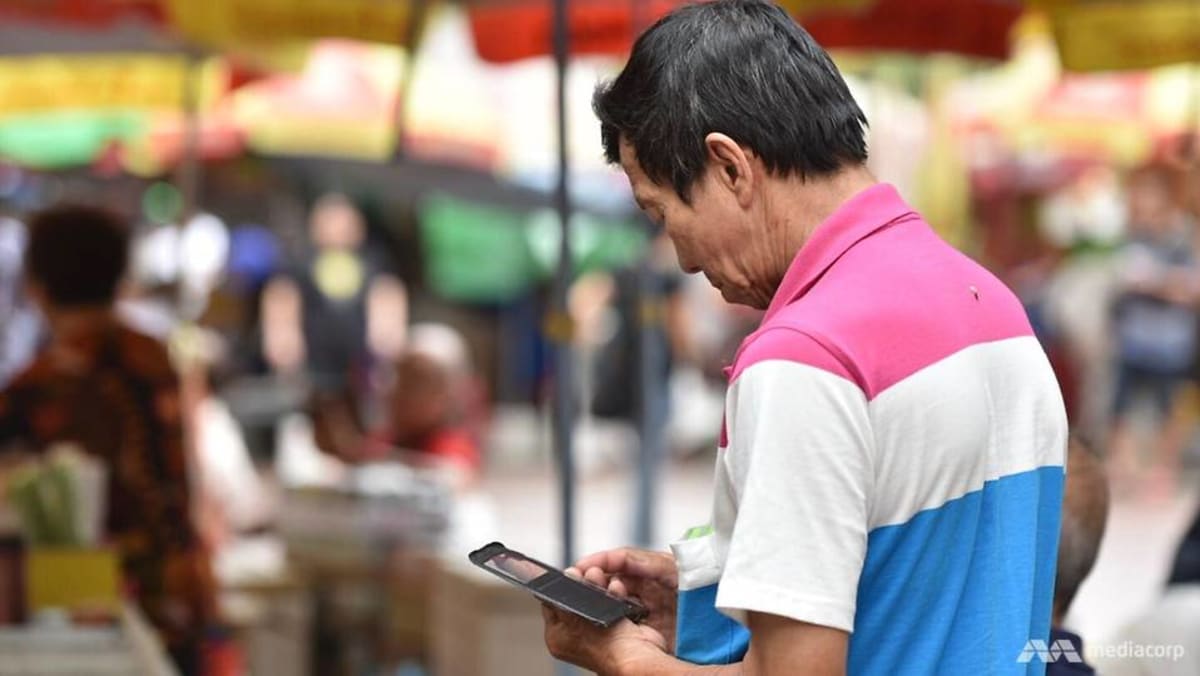SINGAPORE: Almost all resident households in Singapore – or 99 per cent – have internet access, while local smartphone ownership has reached a new high of 97 per cent.
The figures showing high digital connectivity were released by the Infocomm Media Development Authority (IMDA) on Saturday (Nov 4) in its inaugural Singapore Digital Society Report.
The report measures digital access, essential digital skills for daily living, and attitudes towards digital technologies in Singapore.
Among seniors-only households, the percentage with internet access has risen from 55 per cent in 2017 to 93 per cent in 2022.
IMDA said that seniors’ perceived lack of need, skills, knowledge and confidence to use the internet are key reasons why the gap remains.
All households with children who go to school full-time have had internet access since 2018. However, 2 per cent still lack access to a computer due to affordability.
IMDA said it will continue to subsidise digital access for lower-income households through DigitalAccess@Home, which complements Education Ministry efforts to support home-based learning.
IMDA also supports lower-income seniors through the Mobile Access for Seniors scheme.
Almost all residents aged 18 to 59 own a smartphone. Smartphone ownership has also become prevalent among seniors, rising from 74 per cent in 2017 to 89 per cent in 2022.
On Saturday, President Tharman Shanmugaratnam said the Digital for Life movement, which aims to help Singaporeans of all ages and walks of life embrace digital learning, is about giving people confidence with digital technologies, especially seniors.
“It’s not about the elderly adapting to a digital world, it’s about using digital applications to help them in their everyday lives,” he said at the Digital for Life Festival.
“And what’s really important as we get older, is the digital apps that allow us to keep our minds active, and to stay healthy. Reminders to take your medication, virtual assistants to exercise at home in a fun way, playing games in a way that keeps us healthy.”
Related:
Commentary: The case for universal digital access, as home-based computing becomes a post-pandemic norm
The Big Read: As banks go big on digital banking, spare a thought for seniors left behind
DIGITAL SKILLS AND ATTITUDES TOWARDS TECHNOLOGY
The report identified five areas of essential digital skills: Setting up and maintaining hardware and software, seeking information online, communicating online, transacting online with the government and other service providers, and navigating online risks and harms.
Digital skills generally improved across the population, and especially among seniors.
The use of mobile payments among seniors rose to 66 per cent, from 17 per cent in 2018. The percentage who use the internet to find information jumped to 86 per cent, from 61 per cent in 2017.
The percentage of seniors who check whether information from online news articles is true reached 81 per cent. IMDA said it was “heartening” that more residents across all age groups do this.
IMDA reiterated that the government has a “digital first” but not “digital only” strategy, where essential government services remain accessible through non-digital means for those unable to adopt digital channels.
It found that more than eight in 10 Singaporeans agree that digital technologies have made their lives easier, and almost two in three are keen to try out new technologies.
But Singaporeans are wary about the risks that come with digitalisation, such as misinformation and online scams, with only about one in two expressing willingness to accept risks associated with technology use.
Going forward, IMDA said that more can be done to help parents better support their children to navigate online spaces in a safe, discerning and responsible manner.
Other areas of improvement include building trust and confidence in the safety and security of digital platforms, and generating excitement towards new digital technologies and their potential.




